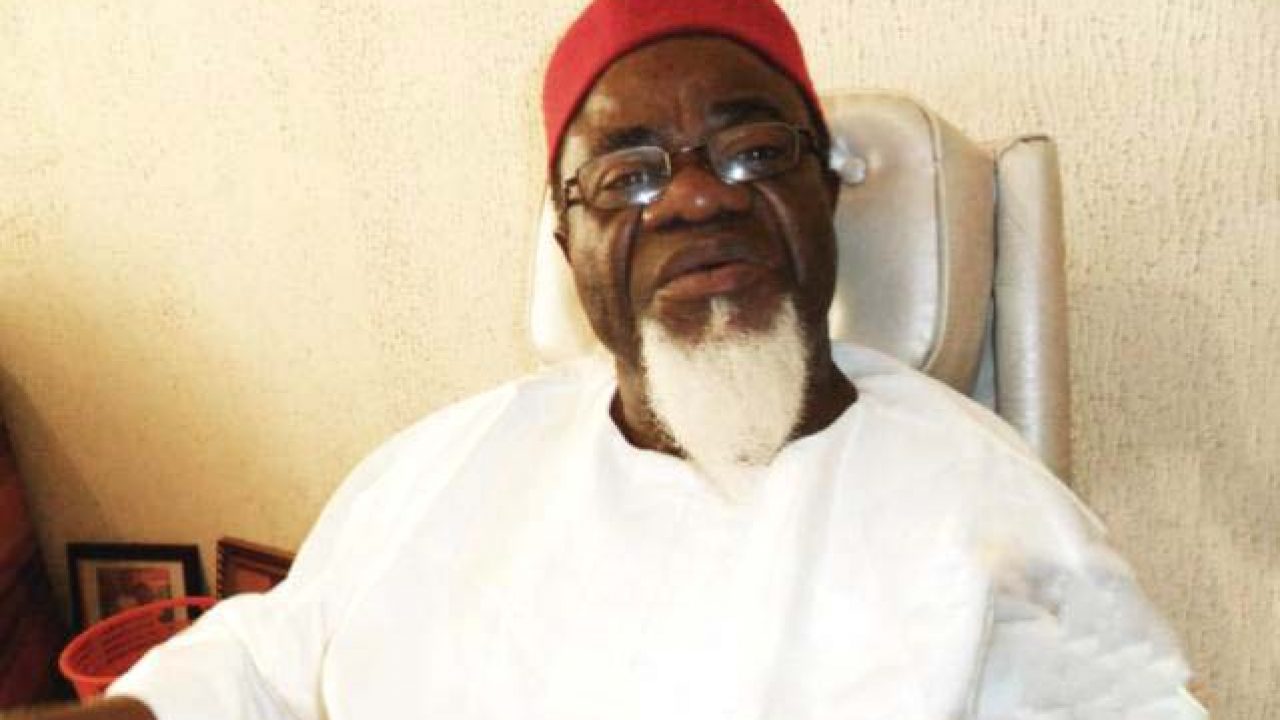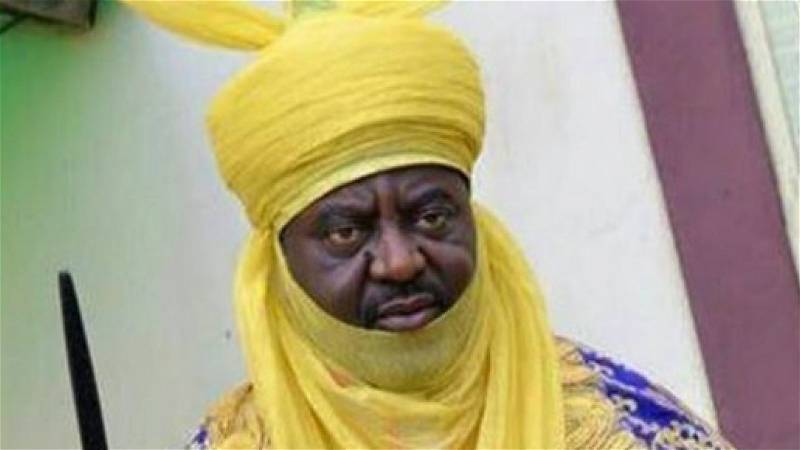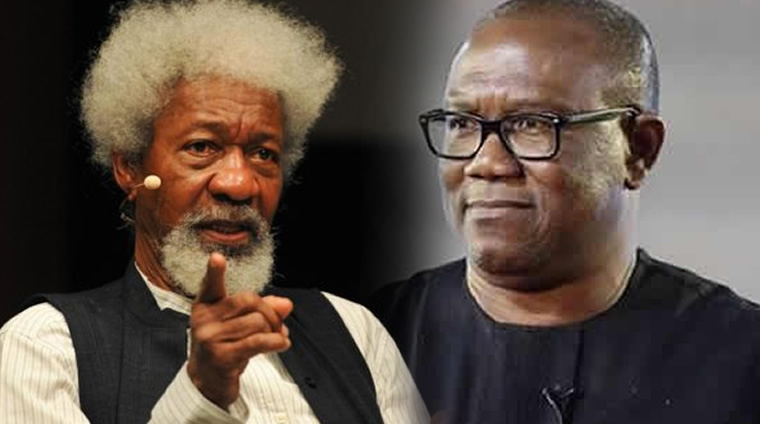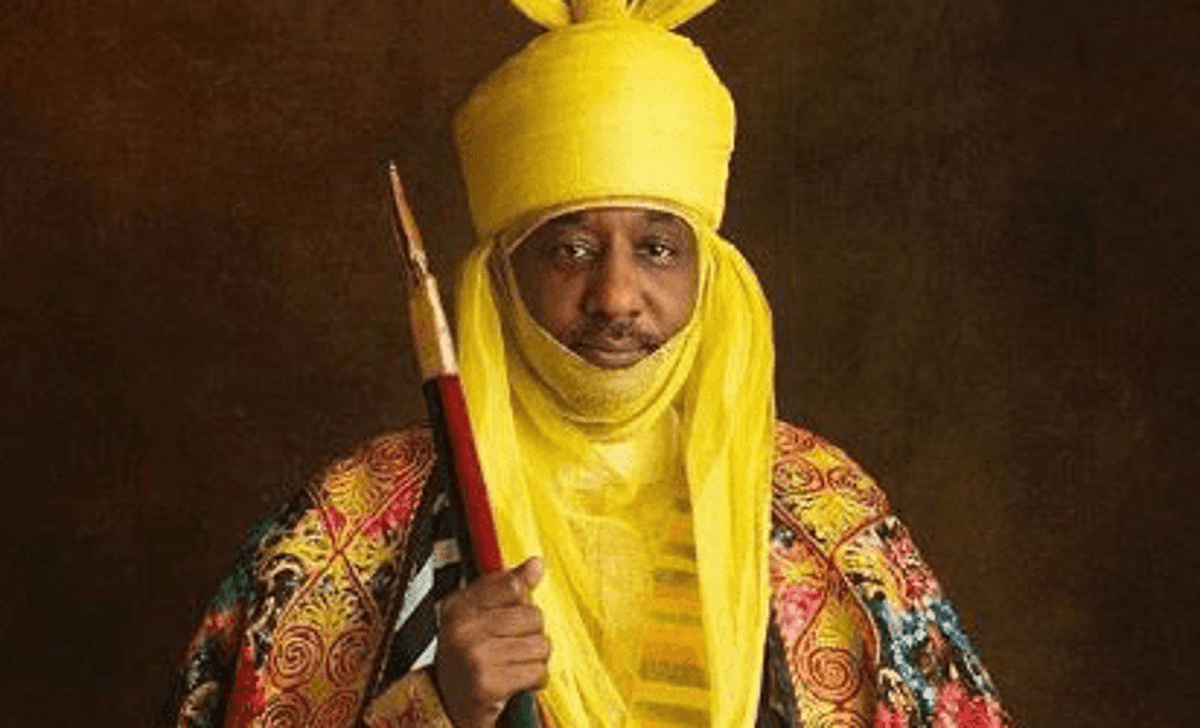By Eric Elezuo
His death on December 14, 2023 brought to a temporary stop the destiny of a man, who had dedicated his entire being to the service of humanity, his country Nigeria, and most especially, his immediate constituency, the South East.
Better known and addressed as Okwadike, a title bestowed on him by the best of traditional rulers, the former governor of Anambra State, Dr Chukwuemeka Ezeife, who was also on the political lists of many Nigerian presidents, has died.
Ezeife died at the Federal Medical Centre, Abuja, on Thursday, December 14, according to a short press release issued on Friday and signed by Chief Rob Ezeife, on behalf of the family.
The statement read, “On behalf of the Ezeife Dynasty of Igbo-Ukwu, I wish to announce the promotion to glory of our most distinguished son, ‘Okwadike’, Dr Chukwuemeka Ezeife, CON, a former Federal Permanent Secretary, a former governor of Anambra State, a former Political Adviser to the President and former Presidential aspirant.
“This sad event took place yesterday at 6 pm at the Federal Medical Centre, Abuja.
“More details about the deceased and the arrangements for his state burial will be announced later.”
Born on November 20, 1938, the deceased fondly called ‘Okwadike’, was governor of Anambra state between January 1992 to November 1993 during the aborted Third Republic. It is said that he called the bluff of the likes Chief Arthur Nzeribe to become the first Excutive governor of the New Anambra State.
Ezeife, who was the governor of Anambra State was born at Igbo-Ukwu, Anambra State between January 1992 and November 1993 during the aborted Third Republic, was born on November 20, 1937. Reports had it that the man, who later became a force to reckon with, did not attend secondary school, but taught himself through correspondence courses, qualifying for university admission.
Out of a dint of hardwork, and sacrifice ladened in determination, Ezeife gained a BSc in Economics from the University College, Ibadan, before proceeding to the prestigious Harvard University on a Rockefeller Foundation scholarship. It was at Harvard that he obtained a Master’s degree, follwed by a PhD degree in 1972.
Thereafter, he became a School Headmaster, a lecturer at Makarare University College, Kampala, Uganda, a Teaching Fellow at Harvard University, and a Consultant with Arthur D. Little in Cambridge, Massachusetts.
Describing his sojourn in education during an interview, the scholar said in part:
“While I was moving around, I met one teacher. I think he was Hausa and saw a certain result and wondered what it was,” he said.
“He told me it was a correspondence course. I asked what it stood for, and he told me about the General Certificate of Education (GCE), explaining that one could do it by taking some correspondence subjects and qualify to take exams, known as ordinary level at that time. That was what happened.
“I went to teach in a school in Anambra state and started applying for correspondence courses; and that went very well. I was the headmaster of the school and I taught up to 3 o’clock, then held an extra class by 5 to 6 and went to the bush to prepare for my correspondence courses. I started immediately. I did it for a month; then by Christmas, I had to go to Onitsha where my elder brother was, and read throughout the period. When my elder brother came back from the village, I had changed so much because I did not sleep due to long and continuous reading.
“That was how it happened until I took the first qualifying test in 1959. I took the ordinary level in 1960 and the advanced level in 1961. And I was lucky.”
It was therefore, surprising that in the following year’s exam, Ezeife, the poor boy from Igbo-Ukwu, who had no secondary education, and was a motor parts apprentice, beat everybody in the faculty and was named the best student. This was the pivot that framed his continuous leap throughout his entire productive life.
As a prelude to his enviable career, Ezeife joined the civil service as an Administrative Officer and rose to the position of Permanent Secretary.
During the return the Civil rule leading to the June 12, 1993 botched presidential election, Ezeife was elected governor of Anambra State on the Social Democratic Party (SDP) platform, holding office for about 22 months before the military coup of General Sani Abacha on November 17 1993, when all democratic institutions were scrapped.
As governor, Ezeife was reputed as a man, who was more interested in planning for the future; a template his predecessors capitalized on to satisfy the developmental needs of the Anambra people.
He is known to have transferred Nnamdi Azikiwe University and Federal Polytechnic, Oko to the federal government, which helped ensure that they survived in the ensuing military regime.
During the Nigerian Fourth Republic Ezeife, who described himself as a social democrat, was appointed presidential Adviser on Political Matters to President Olusegun Obasanjo.
Ezeife was appointed a member of the board of the Centre for Development & Empowerment of Commercial Motorcyclists. In February 2006, the Federal Capital development Authority bulldozed his house in Abuja on the grounds that the plot of land and those of adjacent houses had been acquired improperly. In January 2010 he was among thousands who demonstrated in Awka calling for credible and violence-free governorship elections on February 6.
In April 2010, one of Ezeife’s wives, Onyedi, was kidnapped by hoodlums who had earlier killed four policemen. The kidnappers demanded a high ransom.
An advocate of the best in political strcture for the South East, Ezeife also got on his soap box and severally criticised what he perceived as the marginalisation of the Igbo people by successive Nigerian governments. He was one of the loudest voices that clamoured for an Igbo president,and that fueled his support for the presidential candidate of the Labour Party, Mr. Peter Obi, in the 2023 presidential election.
Till death, he believed that “Igbo have the assignment of developing Nigeria to become an economic superpower.”
He was also force to reckon with in the struggle for the return of the annulled June 12 mandate of late Chief MKO Abiola. He is quoted as saying:
“I have always challenged Yoruba people to tell me one person who worked so hard for the late Chief MKO Abiola before his election and after the annulment of the election than me.
“In the East, everywhere Abiola visited, he went with my pilot car. I was the governor of Anambra state at the time. We worked day and night to ensure he won. When the election was annulled, I was at the forefront of the campaign for its de-annulment. We were the founders of the National Democratic Coalition (NADECO).”
Ezeife is a typical example of one who came, saw and totally conquered.

 News6 years ago
News6 years ago
 Featured6 years ago
Featured6 years ago
 Boss Picks6 years ago
Boss Picks6 years ago
 Headline6 years ago
Headline6 years ago
 Headline6 years ago
Headline6 years ago
 Headline6 years ago
Headline6 years ago
 Headline6 years ago
Headline6 years ago
 Headline6 years ago
Headline6 years ago













